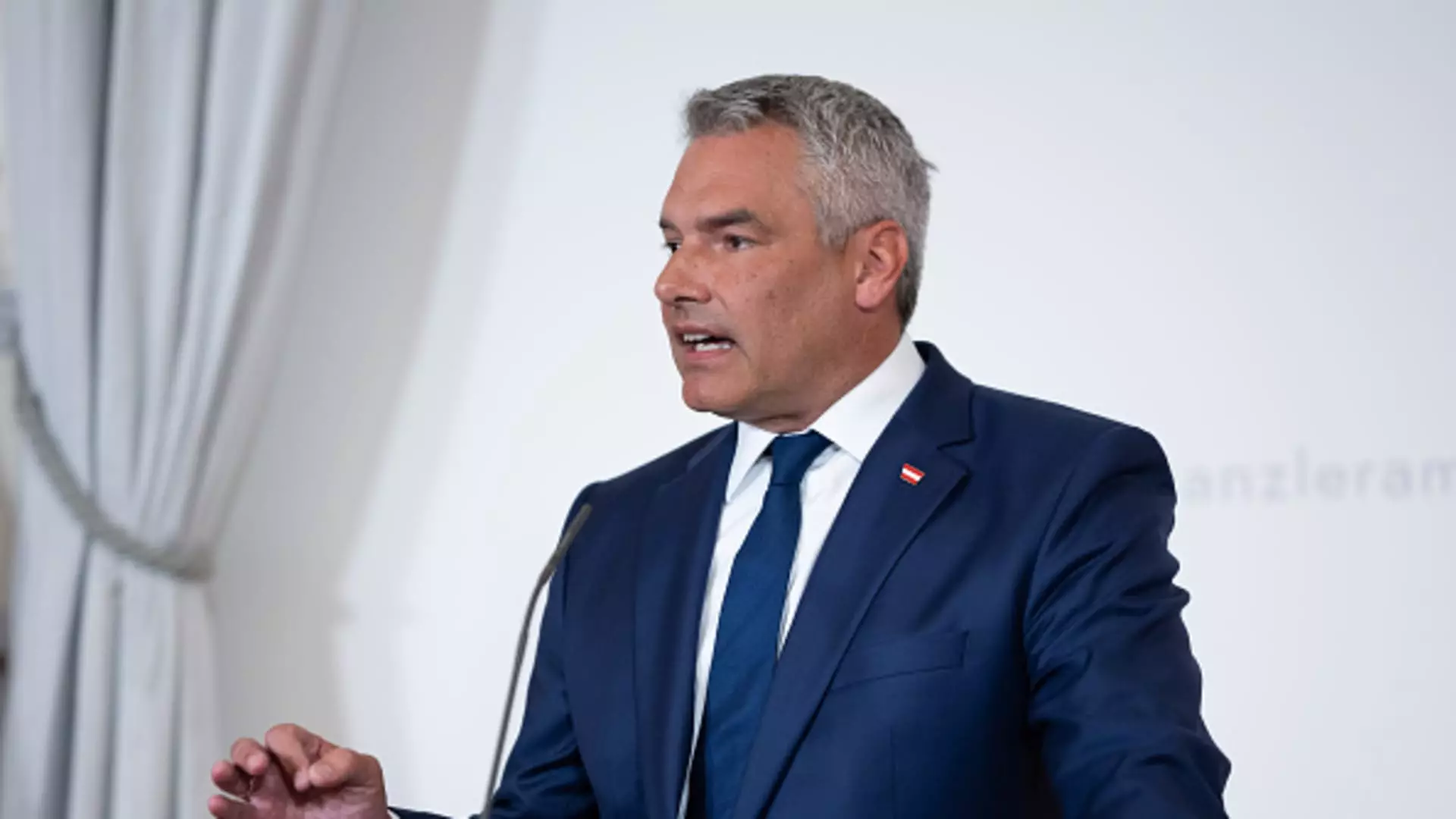In recent days, Austria has found itself in a political maelstrom, revealing significant cracks within its centrist parties that have led to a critical juncture in the nation’s governance. The failed coalition talks between the leading centrist People’s Party (ÖVP) and the Social Democrats (SPÖ) have not only reshaped the political landscape but also heralded an uncertain future that may empower extremist factions within the country.
The dissolution of coalition discussions marked a turning point in Austrian politics. Chancellor Karl Nehammer’s announcement of his impending resignation as both chancellor and leader of the ÖVP served as a poignant symbol of the instability that has taken root in European democracies. The challenges cited by the liberal Neos party in abandoning negotiations—regarding an apparent lack of decisiveness and ambition by the other involved parties—underscore a constricting environment for political dialogue. These sentiments are not isolated; they are echoed in various European countries, where coalition governments increasingly struggle to balance power-sharing amidst rising far-right ideologies.
The far-right Freedom Party (FPÖ), which gained approximately 29% of the vote in the recent elections, looms large in the backdrop of these negotiations. By barring any collaboration with FPÖ leader Herbert Kickl, Nehammer finds himself in a precarious situation—caught between a political rock and a hard place. The resignation now raises the stakes for Austria’s political future, with stark implications for democracy itself.
President Alexander Van der Bellen’s role in this political saga cannot be overstated. Tasking Nehammer with establishing a government seemed prudent at first, but the rapid unraveling of the proposed coalition has thrown his leadership into question. With Nehammer stepping down, the potential for Kickl to be entrusted with this task raises serious concerns about the political direction Austria might take. Kickl’s reputation as a conspiracy theorist has led many to view him as an unreliable leader. Yet, he reflects a broader sentiment within Austria regarding issues like immigration, sharing common ground with his centrist counterparts—a reflection that could threaten the nation’s democratic principles.
Kickl’s comments about the coalition talks echo a familiar narrative of political blame-shifting, reminiscent of the growing polarization within European politics. His likening of the failed negotiations to Germany’s recent three-party coalition failures illustrates a shift towards a more adversarial political climate, framing his party as the aggrieved party in a flawed political process.
The dynamics between the ÖVP and SPÖ reveal a troubling trend: mainstream parties are becoming increasingly reticent about forming alliances, particularly with entities like the FPÖ that embody a stark departure from traditional political values. This standoff not only emboldens the FPÖ but could also alienate voters seeking pragmatic solutions to pressing issues such as the economy, healthcare, and education. The political commentary surrounding the collapse of talks has also pivoted towards governance failures, with accusations that the two dominant parties were unwilling to meet the essential needs of public service sectors.
Andreas Babler, the SPÖ leader, has voiced concerns about potential governance under a right-wing coalition, emphasizing the threat such an alliance poses to democracy. The denouncement of the ÖVP’s approach toward financial reforms, particularly in regards to the welfare system, indicates a widening rift among Austria’s political framework that prioritizes electoral success over civic duty.
As Austria navigates these turbulent waters, the prospect of snap elections looms large, alongside the possibility of the ÖVP reorienting its alliances to include the FPÖ in an unprecedented coalition. Such outcomes could radically alter Austria’s political landscape, dependent on the party leadership’s willingness to adapt to changing public sentiments. The challenge lies in balancing the desire for stability with public skepticism toward far-right governance.
These developments not only highlight vulnerabilities within Austria’s governing framework but also serve as a microcosm of the wider European political climate. As various nations grapple with the potential rise of far-right ideologies, the urgency to address the compelling public concerns that drive such support grows more pressing.
Austria stands at a crossroads, where the decisions of its leaders will shape not only its immediate political future but also the broader narrative of democracy in Europe. The evolving political atmosphere calls for introspection, negotiation, and most importantly, a commitment to uphold the values that define the Austrian democratic process.


Leave a Reply